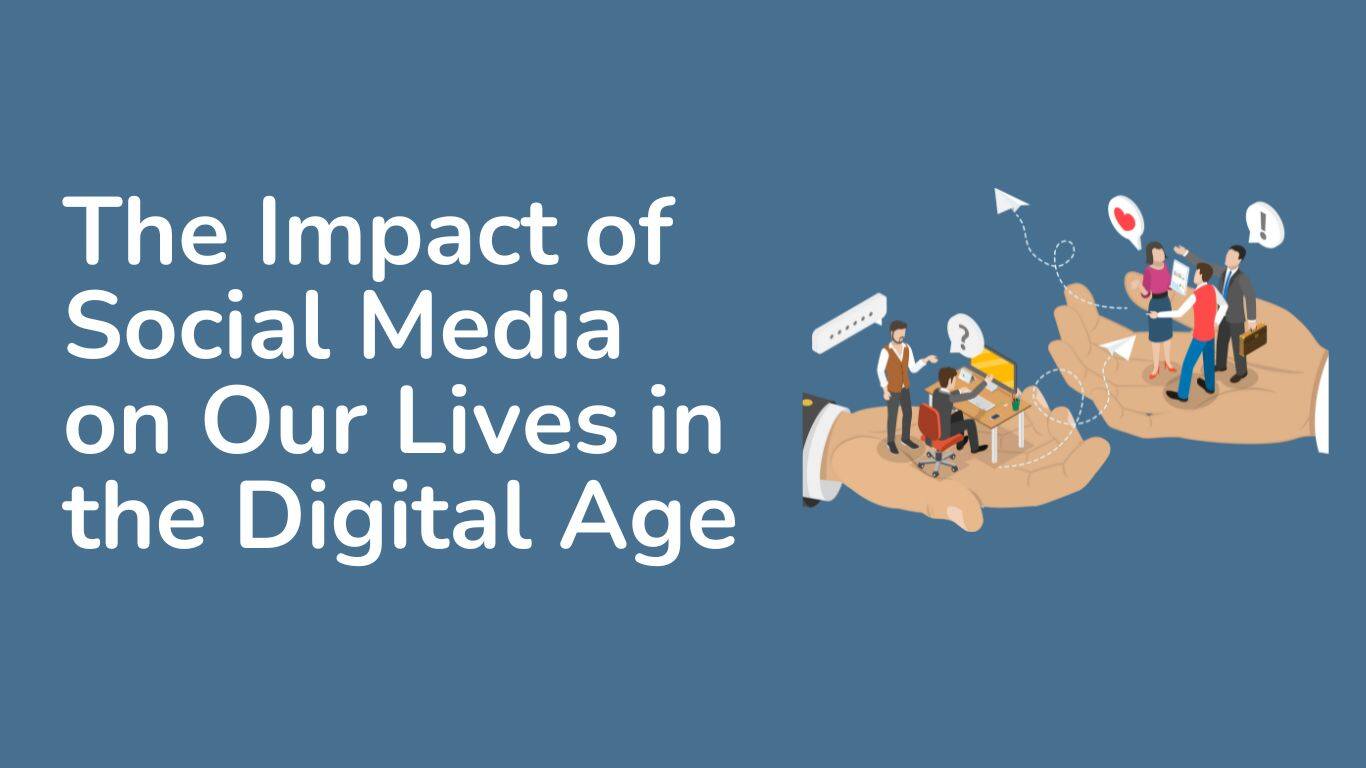The Impact of Social Media on Our Lives in the Digital Age

Understanding the Impact of Social Media on Society:
Introduction
Social media has become an integral part of modern society, reshaping the way we communicate, consume information, and understand ourselves and others. Platforms like Facebook, Twitter, Instagram, and LinkedIn have woven themselves into the fabric of our daily lives, influencing everything from how we stay in touch with our loved ones to how we form opinions on current events. This essay explores the multifaceted impact of social media on society, covering both its positive and negative aspects.
The Power of Connection: Bridging Distances and Building Community
One of the most significant benefits of social media is its ability to connect people across geographical boundaries. Whether it's staying in touch with friends and family or connecting with like-minded individuals, social media has made the world a smaller place. Platforms like Facebook and WhatsApp allow us to communicate instantly with people anywhere in the world, fostering stronger relationships and communities.
For example, social media groups and forums have empowered geographically dispersed communities, such as those affected by rare diseases, to find each other, share information, and advocate for better treatment options. These online spaces provide support networks, allowing individuals to share experiences and find solace in knowing that they are not alone.
The Information Age: The Democratization of Knowledge and the Rise of Misinformation
Social media has democratized access to information, allowing anyone with an Internet connection to share news, insights, and educational content. This has led to a more informed society, with diverse viewpoints reaching a wider audience than ever before. However, this ease of sharing information also creates challenges.
The spread of misinformation and "fake news" is a major concern. The lack of filters and verification systems on some platforms allows false information to travel quickly and capture attention, potentially influencing public discourse and even political decisions. The rise of echo chambers, where individuals are only exposed to information that confirms their existing beliefs, further exacerbates this issue.
The Filtered Lens: Social Media and Mental Health
The curated reality of social media can have a negative impact on mental health, particularly among young users. People tend to project their best selves online, showcasing highlight reels filled with travel adventures, perfect relationships, and enviable lifestyles. This constant comparison can lead to feelings of inadequacy, anxiety, and depression.
The fear of missing out (FOMO), a term coined in the social media age, fuels the need to constantly be connected and engaged, potentially hindering productivity and real-world social interactions. However, there is a growing awareness of this issue, with many platforms introducing features to promote mindful social media use, such as time-management tools and content filters.
Social media has become a powerful tool for social movements and activism. Platforms like Twitter and Facebook have facilitated the mobilization of large groups of people around common causes, raising awareness and amplifying voices that were previously unheard. Online campaigns can generate global discussions and put pressure on authorities to address social injustices.
However, the echo chamber effect also plays a role here. Social media algorithms can present users with content that confirms their existing beliefs, limiting exposure to diverse viewpoints and potentially hindering constructive dialogue.
The Good, the Bad, and the Likes: Influencers, Targeted Ads, and Our Social Media World
Social media has become a major force in our lives. It's how we connect with friends and family, how we find out what's going on in the world, and even how we shop. Businesses have figured this out too, and they're using social media to target us with laser-like precision with their ads. This can be a good thing, because it means we're seeing things that might actually interest us, but it can also feel a little scary sometimes.
Furthermore, these are social media influencers – people who have built a large following online and use it to promote products and brands. They can be a powerful marketing tool, but it also has a dark side. Sometimes it's not always clear whether something is advertising or not, and some influencers may promote things that aren't good for us at all, like unrealistic beauty standards or unhealthy habits.
Taking Back Control of Our Social Media Experience
So what do we do about all this? Well, as social media keeps growing and changing, it is important to know how it is affecting us and develop some healthy habits. We need to be able to think critically about what we see online, especially when it comes to information – not everything we see is true, and sometimes things can be downright misleading. . ,
Another important thing is that we create a balance between our online and offline lives. Social media is great for staying connected, but it shouldn't replace spending time with the people we care about in the real world. We should also be mindful about what type of content we are filling our feed with. If something is bringing us down, it's okay to unfollow. On the other hand, following accounts that inspire and uplift us can make a big difference in how we feel
Conclusion :
In conclusion, social media has had a profound impact on society, influencing how we connect, consume information, and perceive ourselves and others. While it offers numerous benefits, such as connecting people and democratizing access to information, it also poses challenges, such as the spread of misinformation and its impact on mental health. By fostering responsible social media use and being mindful of its impact, we can harness its power for positive change

By : ravi
By : ravi
By : ravi
By : ravi
By : ravi
By : ravi
By : ravi
By : ravi
By : ravi
By : ravi